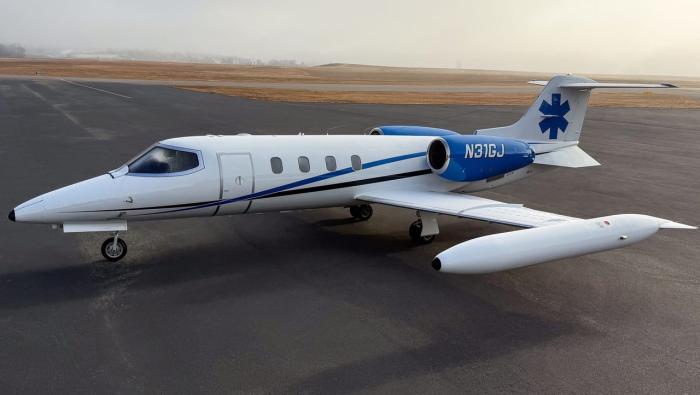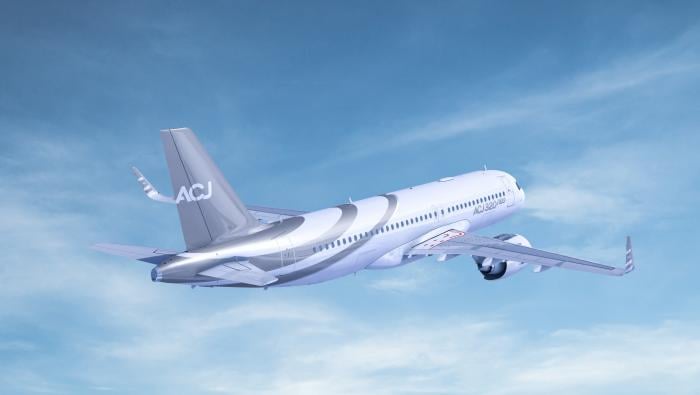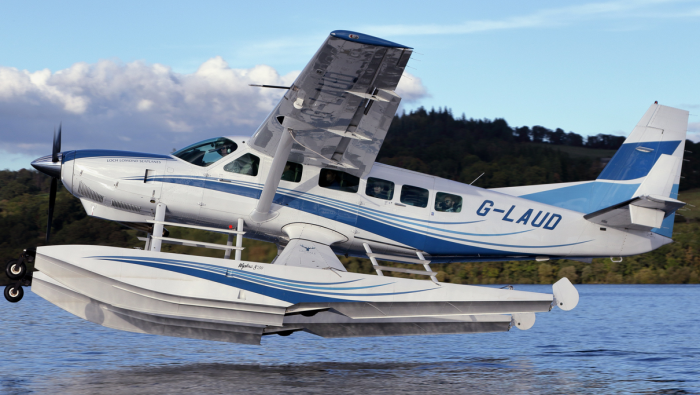It’s an axiom of the industry that “to make a small fortune in aviation, start with a big fortune.” So far that has not been the case for the owners of Springfield, Ohio-based Spectra Jet. John Yegerlehner, logistics manager for Spectra Jet, told AIN, “The three of us started this company seven years ago simply because we love Learjets and have since built a reputation as a premier Learjet repair station.” Yegerlehner; Dave Riegel, the company’s chief inspector; and Mike Catherwood, president and general manager, are co-owners of the Beckley Airport-based company.
Catherwood is proud of two key elements of the business: the co-owners conceived the idea without a dollar to back it up and all three continue to work on the floor.
“We all worked for Glasco [Gates Learjet Aircraft Services Company] at Wright Patterson AFB in Fairborn, Ohio, as maintenance technicians from 1994 until 1997,” Catherwood said. “We came to the conclusion we could do as well as any MRO, and probably better. So in 1995 we decided to start our own repair station specializing in Learjets, but we had this little problem: no money. We knew it would be expensive to buy the necessary equipment so we agreed to continue working for Glasco, tighten our belts and start saving.”
Two years later they’d saved $20,000, went to a banker and convinced him to loan them $60,000 and purchased the minimum necessary equipment. They then began looking for a location in the Dayton area and started the FAA paperwork to become a certified repair station.
“As soon as we walked on Beckley Airport we liked it,” Catherwood said. “There was a small civilian terminal but because an F-16 National Guard unit was there the airport had a long instrument runway. Other than that, there was very little traffic and not a single Learjet based on the airport. It was clear from the beginning we were going to have to go find Learjet owners and convince them to come to Springfield.”
Initially they tried sending letters, making phone calls and advertising. Nothing worked. “We quickly realized we had to meet people face to face,” he said. So they bought and customized a 30-foot trailer, had a large Ruger hoist installed and hit the road.
“We would drive to a town, find the local airport and just start talking to people,” he said. “One day we went to Middletown, Ohio, walked in to a shop and talked to some mechanics working on a Falcon 20 and a bunch of DC-3s. They also had some Learjets. We told them we specialized in Learjets and together had 28 years of experience.”
Nothing came of the visit to Middletown until about a year later, when all three of that company’s Learjet mechanics quit. “Suddenly they had no Learjet expertise, so they called us to do a cable change on a Learjet 25. We did it in two days at a decent price, and they were thrilled. It began a long relationship during which we did a lot of Learjet work for them until they finally sold those airplanes.” Catherwood said Spectra Jet still does a lot of 24-hour AOG work every year, traveling to as many as 70 airports throughout the Midwest and beyond.
By 1999 the trio had put together the necessary money and sublet one-third of a 15,000-sq-ft hangar from Sunbird Air Services on Beckley Municipal Airport. They also received FAA approval as a certified repair station for airframe and engine work on Learjets 20-series through 60.
“John and I were the only two full-time employees in the early days,” Catherwood explained. “Dave has always held another full-time job and assists with doing inspections here. We did our first job for a major fractional operator in June 2000 and continue to be a regular service provider for them. They have sent us to 15 states surrounding Ohio; it accounts for about one-third of our business.”
More than Just Learjets
In addition to comprehensive Learjet maintenance and inspections, Spectra Jet does minor work on TFE731s and Learjet and Dee Howard thrust reversers.
“We currently have four full-time and 12 part-time maintenance techs. Our fundamental concept has always been to be a lean-and-mean operation,” Catherwood said. “Everyone works, including us. That’s why we got in the business to begin with; we like working on Learjets.
“I know with all this expansion we’re eventually going to have to add some executive positions such as an office manager, maintenance manager and financial manager. Eventually I even see hiring a full-time president to replace me. The three of us agreed from the beginning we just wanted to work on airplanes.”
Catherwood said they are in the process of building their own facility and will sell fuel to their own customers and offer aircraft storage space. The company plans to break ground next month for an 18,000-sq-ft hangar that will include 6,000 sq ft of air-conditioned shop space. Completion is expected for April 1 next year. The company is also gearing up to expand into the Challenger line.
“There are all kinds of surveys about who does the best maintenance,” Catherwood said. “Here’s what I look at: how many jobs have you been paid for? Of the 650 work orders we’ve done since we went into business, only one guy hasn’t paid us, and he didn’t own an airplane. He commissioned us to look at an airplane he wanted to buy. We did, it was a piece of junk, we told him so and billed him $3,000 for the inspection. We probably saved that guy between $150,000 and $200,000, but he was unhappy the airplane was no good so we got stiffed.”
The company is planning an expansion, but Catherwood emphasized that Spectra Jet isn’t going to get too big. The responsiveness possible with being a small company is what sets it apart, he said. “We did a 12-year inspection on a Learjet that passed all the tests. When the operator went to extend the gear on his return flight home it wouldn’t go down. Fortunately he was able to do an emergency extension so there was no problem. Within four hours we were in Chicago, fixed the problem and he was ready to go on his scheduled trip the next day. We didn’t charge him even though it wasn’t our fault. He was so impressed that he’s been telling his Learjet operator friends we’re the only shop to deal with.
“Here’s the bottom line: all of our customers who actually have airplanes are repeat customers. The only customers we’ve lost are those who’ve gone out of business or sold their Learjets. In 1997 our income for the year was $3,000; we’ll top a million this year. That’s not bad growth for three guys with no money. I think it sends an important message to others in our industry. At a time when big-name operations are dropping millions of dollars to start a maintenance facility, the truth is a small guy can still get in the game, provide top-notch service and be successful.”







